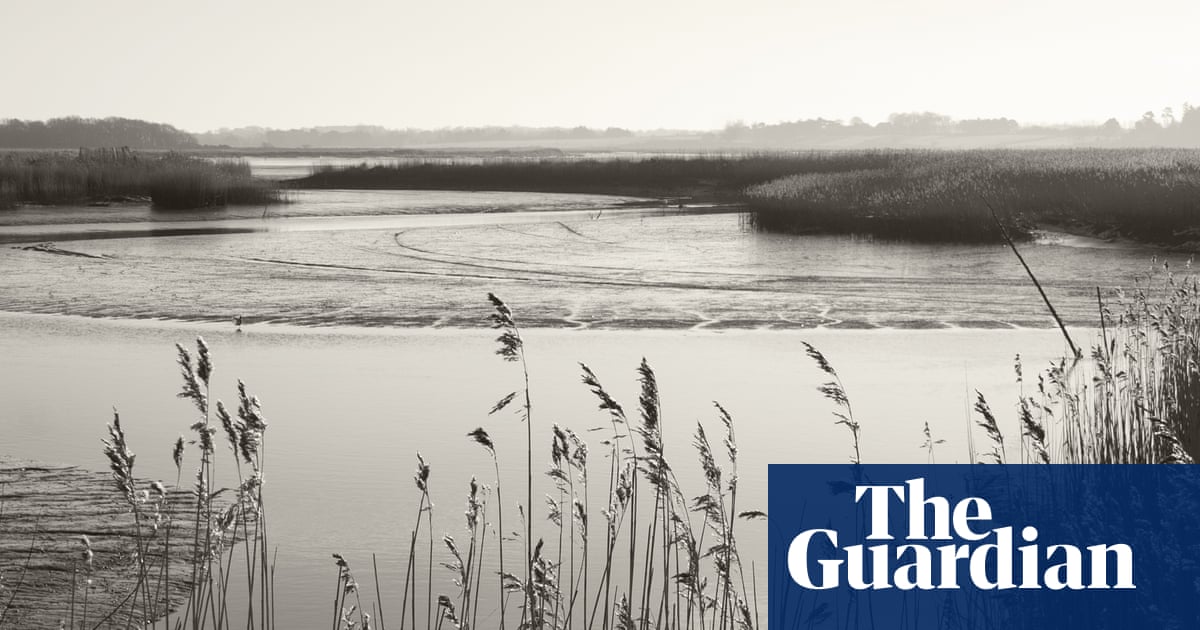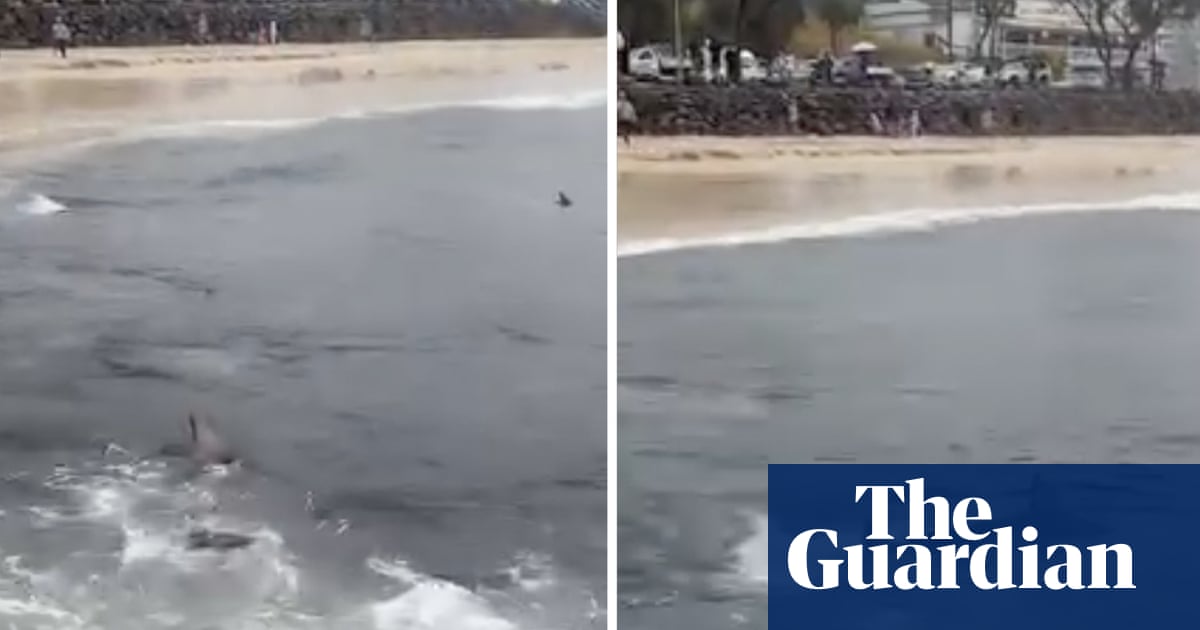New concerns about the safety and viability of the flagship UK-French policy to intercept migrant dinghies at sea have emerged after a coastguard log leaked to the Guardian revealed a recent boat-slashing incident that failed to stop people reaching the UK.
Despite the government’s pledge to stop overcrowded dinghies crossing the Channel, the number of people arriving in the UK on small boats this year has increased by about 50% compared with the same period last year, with more than 21,000 crossing so far in 2025.
The prime minister, Keir Starmer, and the French president, Emmanuel Macron, announced a ‘one in, one out’ deal at their recent meeting under which one person would be allowed to travel legally to the UK to claim asylum in exchange for another who arrived irregularly being returned to France.
A second part of the deal is the interception of overcrowded dinghies up to 300 metres out to sea. The practice has been happening since at least 2022, according to an investigation last year by Lighthouse Reports, Le Monde, the Observer and Der Spiegel.
The incident, revealed to the Guardian in a log known as a situation report or Sitrep from the Gris-Nez maritime rescue coordination centre, happened overnight on 9/10 July just hours before the Starmer-Macron announcement.
The home secretary, Yvette Cooper, said in media interviews last week that France was reviewing tactics that might produce change based on the principle of intervening in French waters and that it would take forward the conclusions of that review.
According to the log, the incident began at 11.21pm on the night of 9 July when the gendarmerie intervened in the departure of a dinghy from Cayeux-sur-Mer by puncturing it. Then they lost sight of the boat and at 11.22 the coastguard was asked to search with air and sea resources.
The coastguard identified the dinghy in the early hours of 10 July. Despite having been slashed it picked up more passengers along the coast and arrived in the UK with 55 passengers the same day after it was rescued by an RNLI lifeboat. Home Office data shows that 10 boats arrived that day carrying 573 passengers.
French coastguard sources said the incident was evidence that even when the gendarmarie had slashed a dinghy, if it remains afloat those on board would not be deterred from trying to reach the UK. It also highlights that the boat-slashing tactic requires extra sea rescue resources.
In an open letter to its director published in French media on 25 June from the French coastguard union, Solidaires Douannes, concerns were raised about “increasing institutional mistreatment of people in exile” as part of stop-the-boats policies.
Separately it has emerged that the Brook House immigration removal centre near Gatwick Airport has been earmarked to detain people who arrive in small boats before their return to France. It is not known how the Home Office will select those for return, nor for how long they will be detained. Brook House was previously the subject of a public inquiry after damning undercover footage of mistreatment of detainees obtained by BBC’s Panorama.
after newsletter promotion
The head of advocacy and public affairs at Care4Calais, Charlotte Khan, condemned the evidence contained in the coastguard log. “We have become accustomed to police brutality being used against the refugee community in northern France over many years, but what we are witnessing just now is a rapid increase in this state-funded violence,” she said.
“Slashing boats in the water will put lives at risk, but as these disturbing logs show, it won’t stop people making dangerous journeys to seek safety in the UK. Not when they have already fled war and persecution at home, and survived unimaginable dangers on their journey.
“The fact people are willing to risk their lives to seek safety in the UK in the first place should be enough evidence that so-called deterrents, regardless of how brutal they are, do not work. They only make people take ever more dangerous journeys. The only way to stop crossings is to offer safe routes to claim asylum.”
Home Office sources said the French government had not yet announced the outcome of their review, but that officials hoped maritime operational teams would soon be able to intervene to stop boats in the water.

 3 months ago
49
3 months ago
49

















































